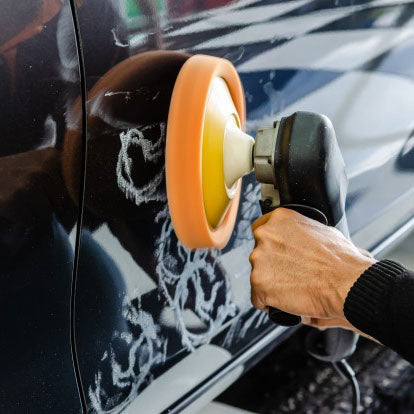Hand washing is one of the simplest yet most effective ways to prevent infections and maintain hygiene in the skin penetration industry. In the context of body piercing, tattooing, and other procedures involving skin penetration, proper hand hygiene is non-negotiable. Failure to adhere to stringent hand washing protocols can result in cross contamination, increased infection risks, and even the spread of serious illnesses.
I want to discuss here the importance of hand washing, the correct techniques, and the best practices specific to piercing while also touching on its significance in other skin penetration industries.
So why does handwashing matter in Skin Penetration Industries?

Infection Prevention
In the piercing industry, the primary concern is the prevention of infections caused by bacteria, fungi, and viruses. Hands are a significant path for these pathogens, making thorough hand washing a critical step in ensuring a sterile procedure.
Cross-Contamination Control
Without proper hand hygiene, cross-contamination can occur, transferring harmful microbes from contaminated surfaces, equipment, or clients to fresh piercings or wounds. This increases the risk of localized infections and more severe conditions if not attended to.
Compliance with Health Regulations
Health and safety regulations mandate strict hygiene practices in skin penetration industries. Failing to wash hands properly can result in legal repercussions, fines, or the closure of a business. Adhering to guidelines ensures compliance and professional integrity.
Client Trust and Professionalism
Clients trust professional piercers and practitioners to maintain a clean and safe environment. Demonstrating strict hand hygiene not only builds credibility but also reassures clients that their safety is a top priority.
When Should You Wash Your Hands?

Before a Procedure
Prior to setting up for a skin penetration procedure, hands must be washed thoroughly to eliminate any potential contaminants. This ensures a sterile start to the procedure.
Before and After Wearing Gloves
Wearing gloves does not eliminate the need for hand washing. Hands must be cleaned before donning gloves to avoid trapping bacteria inside, and again after removing them, as gloves may develop micro-tears or contamination from handling equipment.
After Touching a Client's Skin
Even if the client appears clean, their skin carries natural bacteria. Any contact before the procedure requires immediate hand washing.
After Coughing, Sneezing, or Touching the Face
Self-contamination can occur when touching one’s own mouth, nose, or eyes. Practitioners should be mindful of these habits and wash hands accordingly.
After Cleaning Workstations or Surfaces
Disinfecting the piercing area or tattoo station is crucial, but handling cleaning supplies can leave residues on the hands, necessitating further washing.
After Using the Restroom
A non-negotiable rule in any industry, washing hands after using the restroom prevents the spread of faecal-oral bacteria such as E. coli.
At Regular Intervals During the Day
Even when not performing procedures, frequent hand washing is essential for maintaining general hygiene and reducing overall contamination risk.
How to Wash Hands Properly

Step-by-Step Guide
- Wet Hands: Use clean, running water (warm or cold) to wet your hands.
- Apply Soap: Use a generous amount of antibacterial liquid soap.
- Lather and Scrub: Rub hands together, covering all surfaces, including each finger, thumbs, palms, backs, between fingers, and under nails. Scrub for at least 20 seconds.
- Rinse Thoroughly: Use clean running water to remove all soap.
- Dry with a Disposable Towel: Avoid using reusable cloth towels in professional settings.
- Turn Off the Faucet with the Towel: This prevents re-contamination.
Hand Washing in Other Skin Penetration Industries
Tattooing
Tattoo artists must maintain the same level of hygiene as piercers. Ink, blood, and bodily fluids can carry pathogens, making rigorous hand washing crucial.
Cosmetic Tattooing
Procedures such as microblading or scalp pigmentation involve breaking the skin’s barrier, making hand hygiene essential to prevent complications.
Medical and Dental Professions
Dermatologists, cosmetic surgeons, and dentists follow strict hand hygiene protocols to prevent cross-contamination between patients.
Beauty and Aesthetic Treatments
From micro-needling to dermal fillers, aestheticians must wash their hands before and after each procedure to maintain safety.
Common Mistakes and Misconceptions

Using Gloves as a Substitute
Gloves do not replace hand washing. Bacteria can accumulate inside gloves, leading to contamination when removed.
Not Washing Long Enough
Many professionals do not scrub for the recommended 20 seconds, reducing effectiveness.
Using Bar Soap
Liquid soap is preferable in professional settings, as bar soap can harbor bacteria.
Ignoring Fingernails and Cuticles
Bacteria often accumulate under nails. Regular cleaning and keeping nails short help minimize risk.
Touching Contaminated Surfaces After Washing
Opening a door with washed hands can immediately reintroduce bacteria. Using a disposable towel or elbow is a safer practice.
How to enhancing Hand Hygiene in the Workplace
Installing Touch-Free Faucets and Soap Dispensers
Minimizing hand contact with surfaces reduces contamination risk.
Providing Hand Sanitizing Stations
Alcohol-based hand sanitizers serve as a supplementary measure when immediate washing isn’t possible.
Regular Staff Training
Consistent education ensures compliance with hygiene best practices.
Routine Audits
Periodic checks help reinforce strict hand washing protocols within studios and clinics.

Hand washing is an indispensable practice in the skin penetration industry, particularly in body piercing. By understanding when, how, and why to wash hands, professionals can significantly reduce infection risks, ensure client safety, and uphold industry standards. Implementing proper hand hygiene measures not only fosters trust but also reinforces a commitment to excellence in body modification and related fields.
Strict adherence to these principles will contribute to a cleaner, safer environment for both practitioners and clients, ultimately advancing the reputation and credibility of the entire industry.
Want to learn more? We have various health and infection control courses available to assist you just click the image link below:
-- Jaz Anna



